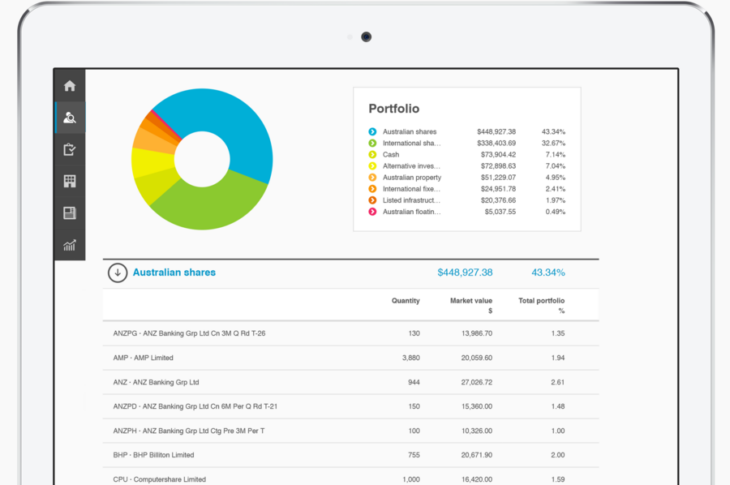Self-Funded Retirees: Are You Prepared For Massive Changes To Super on 1 July?
Are you a self-funded retiree with more than $1.6 million in superannuation?
The biggest changes to super in ten years come into effect on 1 July. Time’s running out to take advantage of this tax-effective window.
Changes to super on the horizon
In 2017, the end of financial year looms larger than ever for self-funded retirees and high net worth individuals. That’s because many of the changes to superannuation the Government announced last year come into effect on 1 July. The changes affect self-funded retirees as well as those still working towards retirement.
More than $1.6 million in a pension?
If you have more than $1.6 million in a pension after 30 June, you need to be aware of a few things:
Currently, the earnings on your pension assets (like shares, cash, or rental income) are tax-free. After 1 July, there will be a limit of $1.6 million eligible for the tax-free concession.
If you have more than $1.6 million in a pension, you need to take action to reduce your pension under $1.6 million or suffer the consequences of becoming non-complying. Non-compliance may lead to tax of 45% on the Fund’s assets and harsh admin penalties (proposed to be $12,600 per trustee from 2017/18).
To help you transition into the new rules, the ATO is giving you a last minute opportunity to obtain capital gain tax relief. This is especially important for funds sitting on large unrealised gains. However, you need to consider whether taking up the relief if appropriate for you (its a complex strategy and no one-size fits all) and if so, make the election before the Fund lodges its 2017 tax return.
And there are new rules about the tax treatment of income inside your transition-to-retirement income stream. You could find yourself taxed 15% on income you had assumed would be tax-free.
More than $1.6 million in super?
If you have more than $1.6 million in super (in accumulation or pension phase) after 30 June, you need to be aware that after 1 July, you will no longer be able to make after-tax contributions to your super (pending the Federal Budget proposal to allow those over 65 to contribute some of the proceeds from downsizing their home). Therefore, if you have recently sold an investment property, received an inheritance or have some other investments outside super, you may want to consider contributing this into super before 30 June.
Don’t have $1.6 million in super yet?
If you have less than $1.6 million in super, the good news is that you may still be able to contribute to superannuation after 30 June. The bad news? The super contributions caps are reducing significantly. This means you may be able to get an extra $240,000 into super this year when compared to after 1 July. Given super is the most tax-effective environment for your retirement savings (0% tax in pension phase) you shouldn’t put off deciding what to do with any cash and assets you’ve got outside super.
Life’s too short to spend it studying the new super rules
“Our existing clients know that we’ve got things under control, to ensure everything that needs to be done, will be done in time.” Financial adviser, Nick Lloyd of ITL Financial Planning said. “Our clients have been concerned about whether their friends and family understand the changes so we’ve been meeting with them. We have found that most weren’t aware of the new legislation. They were too busy enjoying life to realise how much tax they might be forced to pay if they didn’t act fast. Lots of people think, I’ll deal with it when I do my taxes. But if you wait until you do your tax return, it will be too late,” Nick said.
Brian’s case
Brian S. is retired and after selling his business some years ago has a super balance well in excess of $2,000,000. He and his wife Laura live in St Ives and enjoy spending time with their grown up children and three grandchildren and travelling overseas. As an ex-business man, Brian has always managed his own super fund and felt he had this under control.
“I was playing golf with George (one of Nick’s clients) when he asked me if I knew I’d pay big tax if I didn’t take action,” Brian said. “The last thing I wanted to think about was my super. But I gave Nick a call and booked an appointment. Without Nick’s advice, I wouldn’t have known that I was looking at a big excess in my pension account come 1 July – or that Nick had a solution to minimise the tax Laura and I would be hit with.
“That would have been a rude shock at tax time. It would have been enough to make us think twice about whether to travel to Europe this year or next. Which is not something you want to give up when you’ve worked so hard for so many years.
“Now we can go off on holiday feeling good that we have the best strategy for our super, and we won’t be taxed more than we must.”
Nick Lloyd said that Brian’s case is typical. “Many successful business owners and professional people whether still working or retired, feel confident managing their own investments, but the devil’s in the details. My concern is whether others in similar situations to Brian are familiar enough with all the changes to know the different strategies they can use to their best advantage.
“One big area of immediate concern that I can see is unrealised capital gains in your super,” says Nick. “What’s the best way for someone to deal with them, given the changes to super?”
Fortunately, Nick and his team at ITL Financial Planning have been studying the legislation since the changes were announced in 2016, and have been able to implement customised strategies for each client.
Contact Nick Lloyd or Shereen Churchill at ITL Financial Planning to discuss the best strategy for your circumstances.
This information has been prepared and issued by ITL Financial Planning and is current as at 10 May 2017. Material contained in this publication is an overview or summary only and it should not be considered a comprehensive statement on any matter or relied upon as such. This Information may contain material provided directly by third parties and is given in good faith and has been derived from sources believed to be accurate at its issue date. It should not be considered a comprehensive statement on any matter nor relied upon as such. ITL Financial Planning does not accept responsibility for the accuracy or completeness of, or endorses any such material. Except where contrary to law, we intend by this notice to exclude liability for this material. This information does not take into account your personal objectives, financial situation or needs and so you should consider its appropriateness having regard to these factors before acting on it. The tax position described is a general statement and is for guidance only. It has not been prepared by a registered tax agent. It does not constitute tax advice and is based on current tax laws and our interpretation. Your individual situation may differ and you should seek independent professional tax advice.
ITL Financial Planning and its advisers are Authorised Representatives of Fortnum Private Wealth Ltd ABN 54 139 889 535 AFSL 357306. www.fortnum.com.au. Any information on this website is general advice only and does not take into account any person's objectives, financial situation or needs. Please consider your own circumstances and consider whether the advice is right for you before making a decision. Always obtain a Product Disclosure Statement (if applicable) to understand the full implications and risks relating to the product and consider the Statement before making any decision about whether to acquire the financial product.

